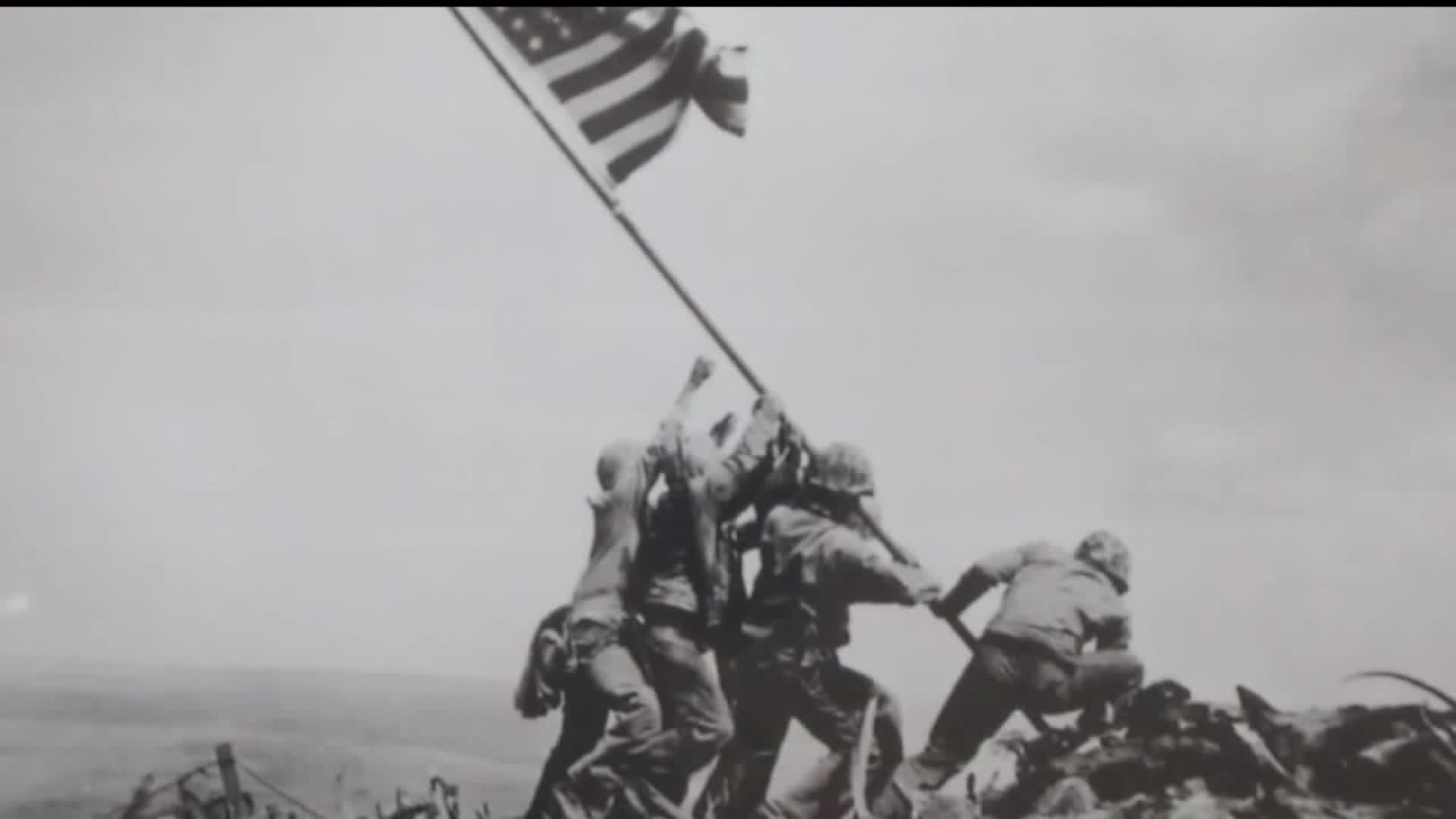DES MOINES, Iowa (AP) — The Marine Corps on Thursday corrected the identity of a second man in the iconic photograph of U.S. forces raising an American flag during the Battle of Iwo Jima.
After questions were raised by private historians who studied photos and film of the event, it determined that one of the six men who raised the flag was not Pfc. Rene Gagnon, as had long been believed, but Cpl. Harold P. Keller, the Marines said in a statement, noting that Gagnon did help obtain the flag.
Associated Press photographer Joe Rosenthal shot the iconic photograph atop Mount Suribachi during the 1945 battle between American and Japanese forces on Iwo Jima.
"Regardless of who was in the photograph, each and every Marine who set foot on Iwo Jima, or supported the effort from the sea and air around the island is, and always will be, a part of our Corps' cherished history," the Marines said in the statement.
In 2016, the Marines corrected the identity of another man in the photo after historians raised questions.
NBC News, which broke the news on the Marines' decision, reported that Keller died in 1979 in Grinnell, Iowa. The Marines didn't provide details about Keller, but NBC interviewed his 70-year-old daughter, Kay Maurer, of Brooklyn, Iowa.
Although Maurer said her father kept a framed Rosenthal photo showing 18 Marines on the summit of Mount Suribachi with the flag in the background, he never mentioned his role in the historic event.
"He never spoke about any of this when we were growing up," she said. "We knew he fought in the war. We knew he was wounded in the shoulder at one point. ... But he didn't tell us he helped raise the flag on Mount Suribachi."
Maurer said that when she would ask her father about the photo, "he would say something like, 'That group raised a flag.'"
The Battle of Iwo Jima began on Feb. 19, 1945, and lasted 36 days, with about 70,000 Marines fighting 18,000 Japanese soldiers. More than 6,500 U.S. servicemen died and about 20,000 were wounded in the battle on the tiny island, which is about 660 miles (1,062 kilometers) south of Tokyo and is now officially called Iwo To.
Most of the Japanese soldiers were killed.
The island was seen as vital to the war effort because Japanese fighter planes based there were intercepting American bombers.
Rosenthal shot the photo on Feb. 23, 1945, amid continuing fighting. He didn't get the men's names, but after the photo was celebrated in the U.S., President Franklin Roosevelt told the military to identify the flag raisers.
The Marines identified the men as John Bradley, Rene Gagnon, Ira Hayes, Harlon Block, Michael Strank and Franklin Sousley. All were Marines except for Bradley, who was a Navy corpsman.
After two amateur historians raised questions about the identities, a Marine panel in 2016 found that a flag raiser long believed to be Navy Pharmacist's Mate 2nd Class John Bradley was actually Pfc. Harold Schultz, of Detroit.
Bradley had helped in an earlier flag-raising on Mount Suribachi, and his role took on greater significance after his son, James Bradley, wrote a best-selling book about the flag raisers, "Flags of Our Fathers," that was later made into a movie directed by Clint Eastwood.
The latest questions were raised by historians Stephen Foley, Dustin Spence and Brent Westemeyer. Their findings were confirmed by a board that was formed by the Marines and was aided by FBI investigators. Foley was also one of the historians who noted the previous mistaken identity.
The Marines noted that Gagnon played a significant role that day. After an initial flag raising, he was responsible for bringing the second, larger flag to the mountaintop, which is the flag depicted in the photo, and returning the first flag for safekeeping.
"Without his efforts, this historical event might not have been captured, let alone even occurred," the Marines said.

